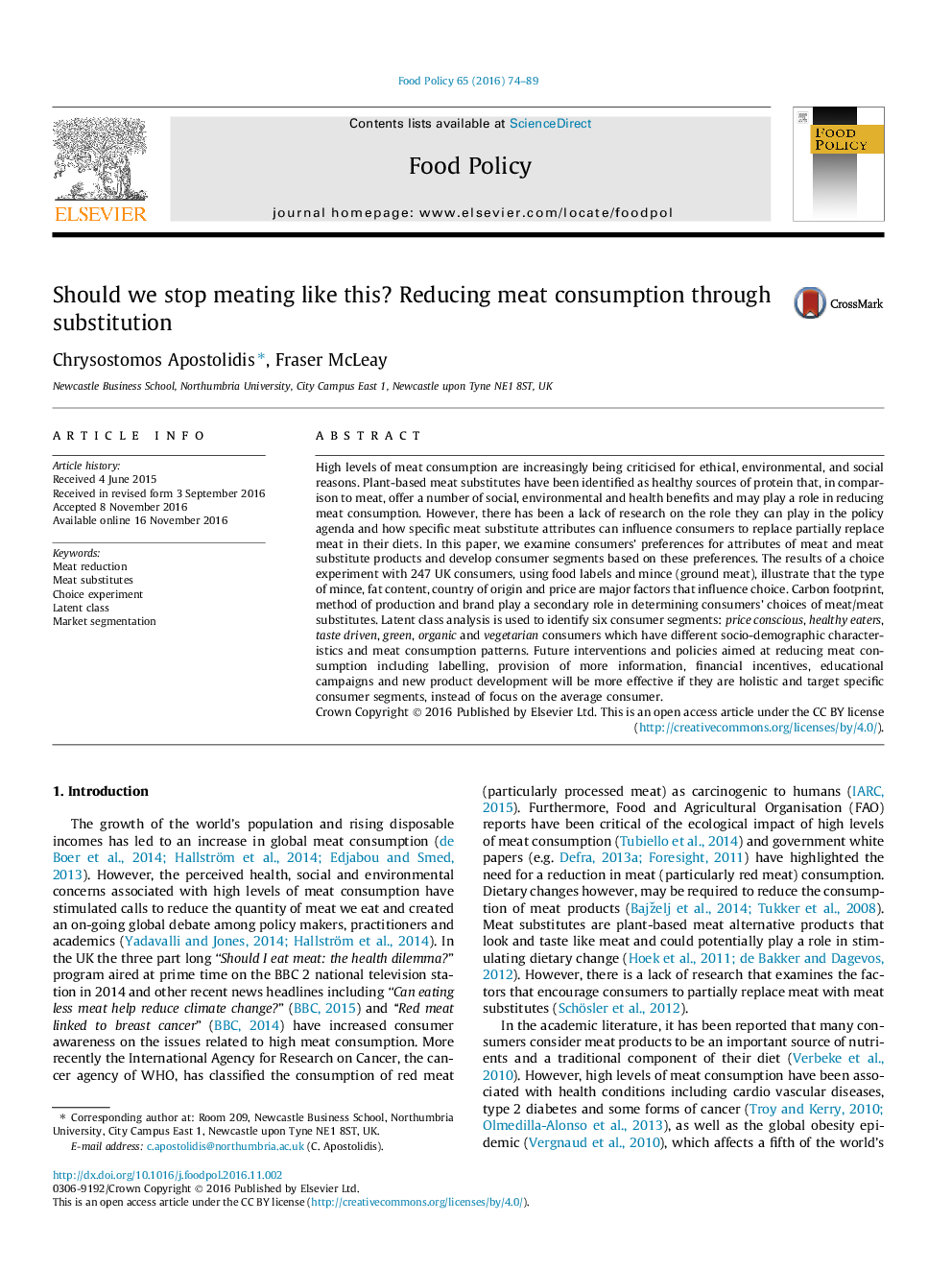| کد مقاله | کد نشریه | سال انتشار | مقاله انگلیسی | نسخه تمام متن |
|---|---|---|---|---|
| 5070087 | 1477011 | 2016 | 16 صفحه PDF | دانلود رایگان |
- Uses a choice experiment to study preferences for meat and meat substitutes.
- Latent class analysis confirms consumer heterogeneity and identifies six segments in the market.
- Consumers with similar meat eating patterns may reduce meat consumption for different reasons.
- Most segments preferred attributes commonly associated with meat substitutes.
- Recommended interventions include labelling, financial incentives, educational campaigns and new product development.
High levels of meat consumption are increasingly being criticised for ethical, environmental, and social reasons. Plant-based meat substitutes have been identified as healthy sources of protein that, in comparison to meat, offer a number of social, environmental and health benefits and may play a role in reducing meat consumption. However, there has been a lack of research on the role they can play in the policy agenda and how specific meat substitute attributes can influence consumers to replace partially replace meat in their diets. In this paper, we examine consumers' preferences for attributes of meat and meat substitute products and develop consumer segments based on these preferences. The results of a choice experiment with 247 UK consumers, using food labels and mince (ground meat), illustrate that the type of mince, fat content, country of origin and price are major factors that influence choice. Carbon footprint, method of production and brand play a secondary role in determining consumers' choices of meat/meat substitutes. Latent class analysis is used to identify six consumer segments: price conscious, healthy eaters, taste driven, green, organic and vegetarian consumers which have different socio-demographic characteristics and meat consumption patterns. Future interventions and policies aimed at reducing meat consumption including labelling, provision of more information, financial incentives, educational campaigns and new product development will be more effective if they are holistic and target specific consumer segments, instead of focus on the average consumer.
Journal: Food Policy - Volume 65, December 2016, Pages 74-89
